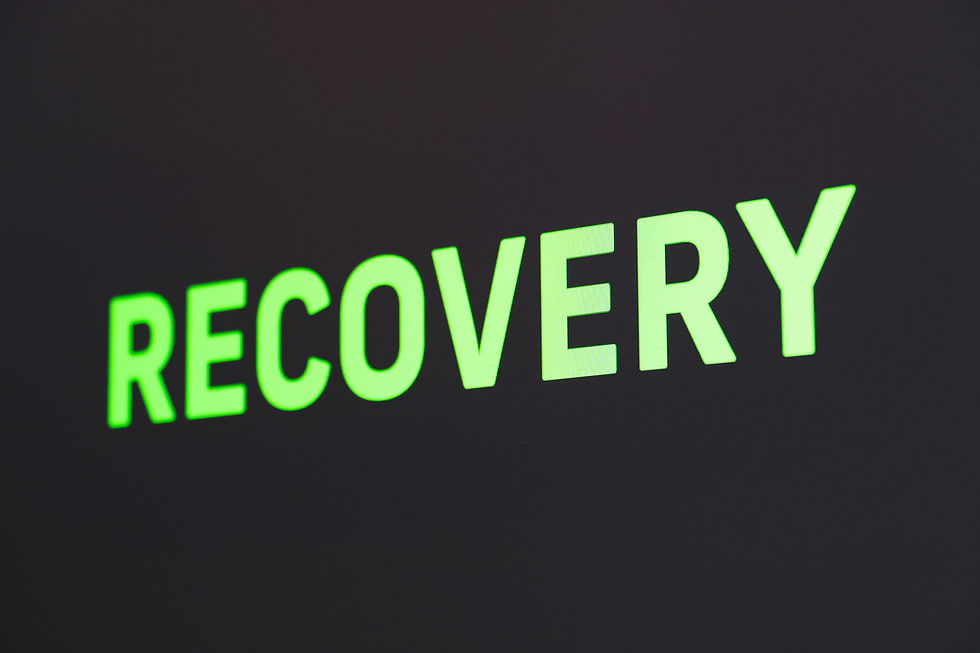How to Find the Right Addiction Counselor for You - A North Carolina Guide to Choosing the Best Support for Your Recovery
- Three Corners Counseling

- Aug 11
- 3 min read
Updated: Aug 18

Why the Right Counselor Matters
When you’re facing addiction, finding the right counselor isn’t just about convenience, it’s about your recovery, your growth, and your future. The relationship you build with your addiction counselor can determine how safe you feel to open up, how motivated you stay, and how effective your treatment will be.
Whether you’re looking for substance use counseling in North Carolina or virtual addiction therapy from anywhere in the state, this guide will help you choose a counselor who fits your needs.
Step 1: Understand Your Needs
Before you start searching, ask yourself:
Am I seeking counseling for alcohol, drugs, or both?
Do I prefer in-person therapy in my local area, or is virtual counseling more convenient?
Do I need specialized support, such as DOT SAP evaluations, trauma-informed care, or dual diagnosis treatment?
Having clarity on your needs will make it easier to find a professional with the right experience and approach.
Step 2: Choose a Licensed Clinical Addictions Specialist (LCAS)
In North Carolina, one of the most important credentials you can look for in an addiction counselor is LCAS - Licensed Clinical Addictions Specialist.
An LCAS is more than just a general therapist; they are specifically trained and licensed to assess, diagnose, and treat substance use disorders. This means:
Specialized Training: LCAS providers complete extensive education focused on addiction, recovery, and relapse prevention.
Clinical Competence: They are qualified to provide individualized treatment plans, evidence-based interventions, and crisis management for clients in active use or recovery.
Regulatory Compliance: LCAS counselors meet strict state standards and ethical guidelines, giving you confidence in the quality and professionalism of care.
Insurance & Legal Recognition: Many insurance companies, EAPs, and even court systems specifically require an LCAS for certain treatment plans or official documentation.
While other licenses such as LCAS-A, LCSW, or LPC may also provide excellent care, working with a full LCAS ensures your counselor has the highest level of addiction-specific credentials available in North Carolina.
Step 3: Check Their Experience with Your Situation
Addiction counseling is not one-size-fits-all. You want someone who understands your type of substance use, your stage of recovery, and your life circumstances.
Ask potential counselors:
Have you worked with clients who share my challenges?
How do you approach treatment for someone in early recovery?
Do you offer relapse prevention strategies and coping skill training?
An experienced counselor should be able to explain their methods clearly.
Step 4: Consider Counseling Style and Approach
Counselors use different therapeutic approaches, including:
Cognitive Behavioral Therapy (CBT) – to change thought and behavior patterns
Motivational Interviewing (MI) – to strengthen motivation for recovery
Mindfulness-Based Relapse Prevention – to manage cravings and stress
12-Step Facilitation – to integrate community-based recovery
Some people thrive with a direct, solution-focused style, while others prefer a slower, more reflective approach. Think about what will help you open up and stay committed.
Step 5: Ask About Accessibility and Cost
Practical details matter in recovery. Ask:
Do you offer evening or weekend sessions?
Is counseling available online and in person?
Do you accept my insurance, or do you offer affordable private-pay rates?
For example, at Three Corners Counseling, we offer $80 private-pay sessions and accept Aetna, Blue Cross Blue Shield, and Cigna, making quality addiction counseling more accessible.
Step 6: Trust the Connection
Even with the right qualifications, the most important factor is trust. After your first session, reflect on:
Did I feel heard and understood?
Was I able to speak honestly without fear of judgment?
Do I feel hopeful about continuing?
Your comfort and safety with your counselor are essential for long-term success.
Finding an Addiction Counselor in North Carolina
Here are a few ways to start your search:
Psychology Today’s therapist directory
Your insurance provider’s in-network list
Referrals from recovery groups or trusted friends
Local addiction treatment centers
Take the First Step Today
Finding the right addiction counselor is one of the most important steps you can take toward recovery. Don’t let uncertainty or fear delay your progress. With the right support, healing is possible, and you deserve to experience it.
If you’re ready to begin, Three Corners Counseling offers in-person addiction counseling in Asheville, NC and virtual therapy anywhere in North Carolina. We
provide compassionate, evidence-based care tailored to your needs, whether you’re in early recovery, returning after a relapse, or navigating life-long sobriety.
Call or text (828) 519-0479 or book your consultation here to start your journey.


Comments